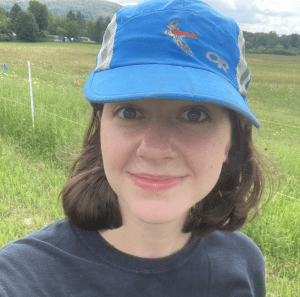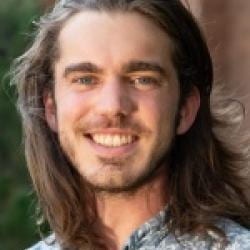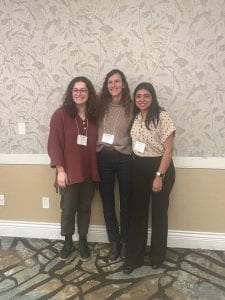Starting in 2024, SIPS leadership meeting minutes are being added to this post, with the most recent meeting at the top. When new minutes are added, a link will be provided in the SIPS Monday News & Events. This change has been made with the goal of increasing information transparency throughout the School
SIPS Leadership Meeting Notes
October 16, 2024
G04 Bradfield Hall, 3.00-4.15 pm
Symposium thanks/”Sips with SIPS” Oct. 21, 1102 Bradfield
- Thank you to Rebecca and her committee for the success of the Celebration! The presentations from the past/current SIPS Directors and the lightning talks were particular highlights.
Travel Card Update (Magdalen)
- All faculty encouraged to get a Travel & Meal card (T&M card) to use particularly for registration and travel expenses to conferences for their graduate students. As an equity issue, students should not have to carry the fees on their credit cards. Arrangements are usually made months ahead of time and reimbursements may not be applied for until after the travel is complete.
Joint appointments
- Joint appointments within SIPS will be made only on rare occurrences. Early career faculty may not be considered for joint appointments within SIPS until after they are successfully reappointed after three years.
Plant Science Building Renovation
- Many details for Phase 2 are under review and space allocation for the surge of current building occupants is finalized.
- During Phase 2 there will be an issue with direct indoor connectivity to the Conservatory and other greenhouses. Need to think more about how to move plants/carts successfully if must go outside to get between greenhouses and labs.
Research Continuity Resources
- Faculty should develop plans for circumstances that disrupt research and teaching, such as strike action by graduate students associated with the ongoing collective bargaining agreements. The OVPRI office is available to provide support for developing such plans.
Potential SIPS Leadership Meeting Visitors
- Chris Smart/Anna Katharine Mansfield (Director & Associate Director, AgriTech) – scheduled for December 11
- Jason Kahabka (Assoc. Dean for Administration, Grad School)
- Julie Suarez (Assoc. Dean Land-Grant Affairs; Dir. Translational Res. Programs)
- Xingen Lei/Tiffany Fleming/Marius Weigert (RIO)
- Sarah Giroux (Assoc. Dean Academic Affairs and Strategic Programs)
- Sahara Byrne – (Senior Associate Dean, CALS)
- Margaret Smith/Toni DiTommaso
- Christie Agnese – (CALS Development Office)
Faculty Positions updates:
- SIPS Job # 1 – SynBio Moonshot: Synthetic Biology of Photosynthetic Organisms – waiting for approval of shortlist for candidate visits from Senior Associates Dean’s office.
- SIPS Job # 2 – CEA Moonshot: Specialty Crop Physiologist – Senior Associates Dean’s office approved 4 candidates for campus visits today.
- SIPS Job # 3 – Seed Biology and Technology – AgriTech
- SIPS Job # 4 – Bioresource Sustainability Science – Job should be posted shortly in Academic Jobs Online.
- SIPS Job # 5 – Plant Microbiome and Health in a Changing Climate – waiting for approval of Job Ad/Search Plans from Senior Associates Dean’s office.
- SIPS Job # 6 – Field Crop Pathology
- SIPS Job # 7 – Education Research in the Plant Sciences
- SIPS Job # 8 – Genome and Phenome Engineering for Small Grains Improvement
- SIPS Job # 9 – Vegetable Crop Physiology
Space allocations are being considered but not finalized.
Faculty conversations (formerly known as ‘chalk-talks’)
- Questions have come up about size of audience and format for this event. Suggestion made: 1) use rooms such as 413 Mann or G04 Bradfield to maintain smallish group, 2) when send invitation to faculty emphasize that if you attend one conversation, you should plan to attend all conversations with candidates (3-4 total), 3) should appoint a monitor/conversation coordinator (section head or search chair?) who will introduce the candidate, lay down ground rules, etc., 4) create bulleted list for expectations for monitor/conversation coordinator and 5) create bulleted list of expectations that can be sent to the candidate in advance.
Orientation documents (new faculty and section heads) – not discussed.
Ethics Course (undergraduate)
- From: Dept. Microbiology – Dr. Gunnar Babcock is starting work in earnest on the new course Ethics in the Life Sciences. “…enlist as much of Cornell University …all aspects in this exciting new course. We would really appreciate if you or a contact could work with Gunnar to provide ideas most relevant to your unit.”
**Now is the time to collect ideas for integrating plants into the curriculum for this course. Bring ideas from your faculty to the next SL meeting to discuss.
AD Updates – not discussed
Section Updates – not discussed
Other
- Awais – SIPS will create metrics to determine what a XX % FTE extension in a faculty appointment equates to. Suggestion made to create a committee composed of one faculty member from each SIPS section and a few faculty from outside SIPS. This effort will be led by Awais.
| Joss Rose |
jr286 |
Director |
P |
| Magdalen Lindeberg |
ml16 |
Assistant Director |
P |
| Dan Buckley |
dbuckley@cornell.edu |
Head, SCS |
P |
| Mike Gore |
mag87 |
Head, PBG |
P |
| Jian Hua |
jh299 |
Head, PBG |
P |
| Gillian Turgeon |
bgt1 |
Head, PPPMB |
P |
| Courtney Weber |
caw34 |
Head, HORT |
x |
| Chelsea Specht |
cdspecht@cornell.edu |
Associate Director for Faculty Development, Equity and Inclusion |
P |
| Rebecca Nelson |
rjn7 |
Asso. Director Research |
P |
| Awais Khan |
awais.khan@cornell.edu |
Asso. Director Extension |
P |
| Kathie Hodge |
kh11 |
Asso. Director Teaching |
P |
| Cindy Twardokus |
ct259 |
Assistant to Director |
P |
SIPS Leadership Meeting Notes
September 18, 2024 3.00-4.15 pm
G04 Bradfield Hall
Staff Update (Magdalen)
- New AgSci undergraduate program coordinator, Lisa Woodruff, starting 9/19/24.
- Reminder to faculty that they bear responsibility for travel/lodging arrangements and scheduling for guests they invite to visit campus/lab/give a seminar (outside of normal seminar slots). Guests may be reimbursed, or faculty may use their T&M card to make reservations if they intend to pay visit SIPS admin staff do not have the bandwidth to provide support.
- Graduate Field Assistant (GFA) position is still under review by Once approved (hopefully on 9/19/24), the position will be sent to HR Central for review.
Joint Appointments (within SIPS)
- Should SIPS have joint appointments? What are the pros/cons? Should assistant professors be allowed to have joint appointments?
- SIPS lacks formal documentation of expectations/responsibilities.
- Agreed that joint appointment within SIPS should be considered only in unique circumstances, and only after the reappointment stage, for assistant professors
- Joss will compose draft guidelines and expectations/responsibilities per discussion, review with SrAD (as SrAD is not comfortable with joint appointments within SIPS) and then send to SIPS Leadership for review.
CALS Leadership Meeting update – See slides from CALS Chairs meeting
OUB update (Gillian)
- Lecturer for new course in Ethics in Life Sciences hired (Joe Peters organized), wants to collect input for a broad course (BIOG 1180). Will not be a Biology requirement, but will be a CALS distribution requirement fall 2025.
- Biological Sciences -foundation courses + concentrations – needs updating!
- Plants poorly represented
- Think about new hires to teach these as well as disciplinary
- DUS? Who are ours? Marvin Pritts and Frank Rossi
- BIOG 4990 undergrad research (2018 1-8 credits, Student option grading), how many of these 1-8 credits should count toward the major (i.e., BIOG 2990, 3 cr max, 3-5 hours per credit S/U)?
Faculty Searches and seminars (campus visits)
- Discussion regarding format of ‘chalk talk’/teaching
- There is great variability in the definition of the chalk talk/teaching seminar amongst sections. Some sections prefer the chalk talk to be a conversation between faculty and the candidate (Where is your research headed? What grants would you apply for?) Other sections prefer to create a classroom experience by having the candidate teach a topic to faculty. Decision to change the name “chalk talk” to something that indicates more of a conversation (e.g. “Faculty Conversation/Discussion”) and to provide an option to schedule a separate teaching/extension seminar.
- Candidates for campus visits are not consistently receiving adequate information on specific expectations for that part of the interview process.
- The section head and the search committee chair will determine whether to include the 3rd option as described below.
- Required:
- Research seminar
- Faculty conversation with candidate (formerly known as chalk talk)
- Attendees will be a small group of faculty only (not graduate students or postdocs).
- Specific expectations for candidates to be determined for each search by the section head and the search committee chair who together will customize a template document outlining expectations. The search administrator will include this document in an email sent to each candidate who has been invited for a campus interview. Email will include a statement that the search administrator will serve as primary contact and to direct all questions to that Search administrator will then send finalized email to search committee chair to send to candidates. (This paragraph will be added to the SIPS search guidelines.
-
-
- Teaching or Extension seminar as applicable.
- Sharing applicant info (cv, research statement, DEI statement )
- Applicant CV’s are considered public information and may be shared with
- Applicant statements (research, teaching, extension, DEI) may be shared only with the voting faculty and the search committee.
- All applicant materials may be shared only with the search
- Participation of grad students in faculty searches document
- Joss will edit draft and send out for distribution via section head
Updates of ongoing searches from section heads
- SIPS Job # 1 – SynBio Moonshot: Synthetic Biology of Photosynthetic Organisms – Reviewing applications
- SIPS Job # 2 – CEA Moonshot: Specialty Crop Physiologist – Reviewing applications
- SIPS Job # 3 – Seed Biology and Technology – AgriTech – Committee approved
- SIPS Job # 4 – Bioresource Sustainability Science – Waiting for approval from SrAD for Job Ad and Search Plans
- SIPS Job # 5 – Plant Microbiome and Health in a Changing Climate – Committee approved
- SIPS Job # 6 – Field Crop Pathology – Committee approved
- SIPS Job # 7 – Education Research in the Plant Sciences – Committee approved
- SIPS Job # 8 – Genome and Phenome Engineering for Small Grains Improvement – Committee approved
- SIPS Job # 9 – Vegetable Crop Physiology – Committee approved
Orientation documents (new faculty and section heads) (Cindy)
Other
- Reminder: CALS faculty and staff awards (October 15)
- SIPS 10-year Symposium (October 8)
- Rebecca seeking more pitches (3 minutes) and
- “Sips with SIPS” coffee hour (1102 Bradfield Hall, September 23)
SIPS Leadership Meeting Minutes
September 4, 2024, 3.00-4.15 pm
413 Mann Library
SIPS 10-year Symposium (October 8)
- Rebecca Nelson is chairing the committee coordinating this event. Send any ideas for this celebration/symposium to her.
“Sips with SIPS” coffee break, Ithaca campus
- Joss announced this new event to bring the SIPS community together beginning on Monday, September 23, 9:30am – 10:00am, recurring bi-weekly, 1102 Bradfield. Coffee/tea/bagels provided by SIPS.
Plant Science Building renovation update
- One-half of the dogtrot is open. Access is available from Plant Science to Mann and the AgQuad. The other half anticipated to open in November.
- Phase I renovations should end in January 2026. Personnel will surge back into new spaces and others will surge out for Phase II.
- Phase II should take around 3 years to complete.
Lightning talks: Joss asked section heads to encourage faculty to volunteer.
Budget update (Tracy)
- Tracy outlined FY25 budget.
- Block grant from CALS has decreased by 11%.
- The block grant is NOT based on teaching FTE%.
- Budget will be distributed soon.
Finance discussion: MPS/SCE/eCornell committee and initiative
- CALS is pushing the above as sources of income.
- School of Continuing Education (SCE) – summer courses primarily taught by Tom Silva and Guilia Friso.
- Joss would like to establish a committee to define the “how to” for eCornell certificates and summer courses and then have information presented to faculty.
Teaching updates: CALS Curriculum Committee, OUB (Gillian)
- Existing CALS curriculum still in effect for AY 2024-2025. New curriculum will start AY 2025-2026, along with the Stellic rollout.
- Faculty should have already identified how their course meets new CALS learning outcomes, if any. (Process was rolled out in May. Unfortunately, several SIPS faculty ignored this request.)
- CALS will soon require 75 credits hours to be taken within the college. It’s 55 now. Most colleges require far more to be taken within their college (e.g. CAS is 100). This differential is hurting us financially. Nearly all CALS students take 75 within the college anyway, so projected impacts on students will be minimal.
- The university will soon require that students have 12 unique credits before a minor is awarded. In other words, students will no longer be able to “double dip,” counting concentration courses in a major and as minor courses, too.
- There are too many classes offered between 10:00 and 2:00 on M-Th. They are considering a process of rescheduling some classes earlier in the morning and on Fridays. Lack of classroom space will become acute when Phase II of the Plant Science renovation begins, making this matter worse.
- Active subcommittee now discussing a CALS wide E3 (experience, engage, entrepreneurial?) requirement.
Faculty Database project:
SIPS admins have developed a comprehensive database for courses/teaching and now would also like to track additional information related to faculty (e.g., FTE%, advisees, pre-tenure schedule, service contributions, awards, etc.)
- Teaching equity
- Section heads should use the guidelines from the SrAD to help set expectations for their section’s faculty.
- In SIPS, a 40% teaching FTE is about 2 courses/year (includes undergraduate and graduate levels courses).
- Student advising
- Joss – should all faculty advise students?
- Advising should be focused on mentoring, suggesting courses that fit student’s goals.
- Discussion about how this would work with AgriTech faculty that do not have a teaching appointment and are rarely on the Ithaca campus. Those that have a teaching appointment should advise. Those who do not have a teaching appointment may be encouraged to advise students, but will not make it a mandatory requirement.
- Service
The following topics not discussed due to lack of time.
- Awards committee, CALS faculty and staff (October 15)
- Faculty searches
- Update on current searches
- Faculty renewal 2025/2026
- ‘Chalk talk’ format
- SIPS website update, branding and external engagement
- External advisory council

SIPS Leadership Meeting Minutes
May 15, 2024, 413 Mann Library
RTE/staff SIP (Magdalen)
- Summary of SIP guidelines. Each category of staff/faculty preloaded in the SIPS system with same % salary increase. The total SIP distributed must be equal to the preloaded % salary increase. This means that if someone is given higher than the preloaded SIP, someone else must receive lower. Concern that we can’t reward good performance adequately if have to downgrade another employee’s SIP.
Course costs (Tracy)
- Instructors will be asked to submit a course budget through a request from Smartsheet. Request will contain course cost data from past two years.
Discussion about the role of graduate students in faculty searches. It’s important that we have consistency/guidelines across SIPS. (Joss)
- Due to graduate student union negotiations, we are not allowed to implement new policies. This issue is tabled for now as we cannot engage in discussion with graduate students about this.
“Chalk talks” (Joss)
- There is considerable variation across SIPS, and even within sections, in the format and processes surrounding the chalk talks during faculty interviews. This leads to a lack of equity for the candidates, among other issues. This topic will be discussed at a future meeting
Interim Expressive Policy and Collective Bargaining (Joss)
- Due to graduate student union negotiations, we are not allowed to have discussions involving students regarding the Interim Expressive Policy. Direct all comments/questions to Joss.
Implications of graduate student unionization (Bill)
Negotiations expected to last for 12-18 months.
Review of the focus of SIPS on its mission and strategic plan, as distinct from the many, and ever-evolving, global sociopolitical issues. (Joss)
SIPS will not issue any statements regarding sociopolitical issues.
Discussion of teaching ‘rules’ described in draft from Sahara. (Gillian)
Finalized document coming from SrAD office soon. Section heads will be empowered to use nuances within policy.
Not discussed due to lack of time: Adding extension reports to the agenda of each section’s faculty meetings (Awais)
- Revision of roles, responsibilities, and tenure of section extension leaders (DELs/SELs). Please see the attached document describing roles and responsibilities of CCE DELs. (Awais)
- Other
- BTI has offered the use of 2 lab spaces for SIPS fall courses.
- CALS seeks to increase revenue from: MPS programs, SCE, eCornell
Joss would like to form a committee to define and manage a process to get faculty involved in these programs and brainstorm about opportunities within sections.
SIPS Executive Committee Minutes
Wednesday, February 21, 2024
Tour of Plant Science building Phase I renovation scheduled for Monday, February 26 at 2pm. Meet in hallway outside 135 Plant Science. (Meeting invitations sent out through Outlook.)
Annual reviews with faculty should be going on now. Joss distributed list of 10 questions to be sent to faculty for their consideration before their performance dialog meeting. Invitations to section heads for check-in meetings with Joss will be sent out soon.
- SIPS Faculty Teaching forum
- Topics will include:
- Conversations in CALS on teaching efforts and equity
- Emerging course needs and vision for SIPS
- CALS distribution requirements for FA24
- Updates from CALS Chairs Meeting (Joss Rose)
See attached CALS Chairs Meeting Summary 2/8/2024
- Current faculty search updates
- Biodiversity – Faculty meet on Friday, February 23 to vote on which candidate to make an offer to. Chelsea has created a website for the Biodiversity Moonshot.
- GIS – Zoom interviews for 8 candidates going on now.
- Ecophysiology – 75 applicants are currently being reviewed. Pool has been approved by the Senior Associates Dean’s office.
- Urban Plant Ecology – Job ad posted in AJO. Goal is to bring candidates to campus in May.
- LIHREC SRA – Offer made with deadline for response Friday, February 23.
- CEA – Plant Pathology – 7 candidates approved by Senior Associates Dean’s office for Zoom interviews which will be held on March 7.
- Seed Biology – 18 applicants; Waiting for list of candidates for Zoom interviews to be approved by Senior Associates Dean’s office.
- Faculty recruitment/Search-a-thon 2024-2025
- Another event to be scheduled.
- Considerations for hiring:
- Think about cluster hires across years when requesting new faculty positions.
- Space is at a premium – think strategically about lab/office space; sharing of resources.
- Future needs around teaching.
- Retirements
- Other
Suggestion to hold a formal SIPS orientation for new faculty as one group and then split into teaching and extension groups.
SIPS Executive Committee Minutes
Wednesday, February 7, 2024
General Updates (Joss)
- BTI/USDA/SIPS engagement: topics/themes?
Welcome reception for Silvia Restrepo went very well; about 100 attendees.
Agreed that regular events should be held perhaps in the format of lightning talks on themes pertinent to BTI/USDA/SIPS.
- Grad student visits: challenges/concerns?
No concerns. Shelby (GFA for SCS and PBG) has done a terrific job in supporting recruitment.
- Grand Challenge Fellowships round 2
Coming soon. In general, process for round 1 worked well.
- Dean’s presentation
- SIPS report
- Annual reviews and performance dialogs
Plant Science Building Renovation Update
- Phase 1 is on track to finish by end of 2025. Phase 2 is in the design phase and now includes the Annex which was previously not being considered for renovation.
- Coming soon – a tour of the renovation site for SIPS Leadership.
Faculty positions:
- Administrative operations, updates, challenges (Cindy)
- See attachment of Gantt chart for visual of the faculty search schedule from now through Fall 2025/Spring 2026.
- See attachment of CALS/SIPS faculty search guidelines divided into responsibilities (Director, Section Head, Admin, etc) for each stage of a search.
- Administrative staff are responsible for other tasks in addition to faculty searches, so we trying to find the balance between workload and providing the best support possible. One way to do this is to keep improving the faculty search process.
- Moonshots
- Community faculty renewal conversations and “Search-a-thon” ideas. (Rebecca)
Please review summary of position pitches from first Search-a-thon meeting. Consider if some pitches could be merged, are there corrections/updates, are there faculty needs missing from this list?
- Updates from Section Heads on conversations in faculty meetings.
- Pre-fill needs: mission critical roles. Potential faculty retirements.
- Significance of space availability, space renovations
- Admin ca
- Onboarding packages for new faculty
Annual Reviews and Performance Dialogs
SIPS Executive Committee Minutes
Wednesday, January 24, 2024
Joss (SIPS Director)
- Think about leveraging new faculty startup funds for equipment needs/replacements.
- Bill Miller – MPS program director as of July 1.
- Dan Buckley – Section Head for SCS as of July 1.
- 2 remaining Moonshot searches should start soon with goal of campus visits in Fall 2024.
Mohamed (Graduate student representative)
- Graduate students elected a representative to the DI Council
- Holding regular social events every 2 weeks.
- Professional development activities starting in February; goal is to connect with alumni to share their career experiences; suggestions of alumni to contact are welcome.
- Recruitment
Met recently with graduate student organizing committee and SIPS Graduate Field Coordinators
- 1102 will be a touchdown space for recruits hangout between meetings
- SIPS social hour on February 9th
- SCS/PBG will sponsor joint facilities tour.
Andrew (Postdoctoral representative)
- Sent survey to postdocs and found out the following:
- Want more social events.
- Want more professional development opportunities.
- Question – what category do postdocs fall in – faculty, staff??
- How build networks as postdocs are hired all year round, so there is no real cohort.
- Lack of postdoc orientation process.
- Trying to recruit more leadership to help guide the group.
- SIPS postdoc group now connected with BTI postdocs that work with plants.
- To boost successful interviewing for future job prospects, Joss suggested holding program on chalk talks – what are they and how prepare effectively.
- Suggestion – SIPS postdocs can join the Cornell University Student Association of the Geneva Experiment Station (SAGES) which could help promote engagement across campuses.
Magdalen (Assistant Director)
- Administrative staff working on effective communication on who does what in SIPS is reflected in recent updates to the SIPS Professional Staff page on the SIPS website. https://cals.cornell.edu/school-integrative-plant-science/about/people/sips-professional-staff. More updates coming soon.
- New centralized process for managing faculty searches lead by Cindy is working well to ensure consistent processes and opportunity for backup support if needed. All search inquiries should be directed to Cindy.
- Magdalen – Head assistants and Cindy have spent a lot of time with process development in various capacities within SIPS.
- Joss – they are also working on faculty orientation process.
- Frank – kudos to Michele Blackmore for her efforts supporting Urban Plant Ecology search.
Marvin (Director of Undergraduate Studies)
- From Leah Cook to course instructors – Please realistically estimate your course enrollment caps rather than estimating low caps and then increasing enrollment numbers one by one as students ask to enroll in the course. This latter strategy has two consequences – instructors may be limited by the size of the classroom to accept more students as classroom assignments are based on estimated enrollment and it creates a heavy workload on admin staff to accommodate each additional enrollment request as they must be handled individually by issuing a unique code that will enable enrollment.
- New course management system for CALS will be implemented next academic year with SIPS serving as the inaugural user. All SIPS courses will need to entered into the new system, so any course changes/updates need to be made soon. Also, all courses will use the PLS course code.
- Lots of new required learning outcomes coming from CALS (e.g., ethics, sustainability and more) and SIPS needs to figure out which courses or create courses to meet requirements.
Frank (Director, AgSci)
- Currently 124 AgSci majors.
- 1st year cohorts from Plant Sci and AgSci joined together for some activities for the first time. This worked well.
- Newly formed advisory committee with members from across the college is working well – reviewing curriculum, etc.
- Kudos to Leah for her work on restructuring the AgSci administrative support role.
- Currently there is an informal internship requirement within the program. Should an internship be an academic requirement? Should there be an administrative structure to manage this process? A learning contract benefits both student and faculty.
Jean-Luc Jannink (DGS Council)
- Recruitment is Feb 8 & 9.
- Process to assign TA’s will start soon.
- Time to start thinking about next round of grand challenge fellowships.
Bill (Section Head, Plant Biology) – absent
- Joss – Campus visits Biodiversity faculty search occurring now.
Dan Buckley (MPS program)
- Admissions coming up.
- Approval received from college registrar to have flexibility on degree requirement courses.
Toni (Section Head, Soil and Crop sciences) – absent
Mike Gore (Section Head, Plant Breeding and Genetics) – absent
Gillian (Section Head, Plant Pathology and Plant-Microbe Biology)
- Welcome back Awais
- Reminder – PPPMB seminar Jan 31, Dr Silvia Restrepo BTI president.
- LIHREC search – offer made.
- CEA faculty search – many applicants; closing date end of January; in person interviews late April/early May with research seminar in Geneva and chalk talk in Ithaca.
- PPPMB Faculty renewal talks ongoing.
Justine (Section Head, Horticulture)
- Retirement party for Bruce Reisch is February 2nd in Geneva.
- RTE listening session with Marcia Eames-Sheavly:
- Lack of onboarding for RTE faculty
- What group do we belong in?
- Marcia offered to hold session with SIPS administrative staff.
- Urban Plant Ecology faculty search waiting for approval to post the position in AJO from SrAD.
- Seed faculty search reviewing for Zoom candidates; good pool of candidates.
Chelsea (Associate Director for Faculty Development, Equity and Inclusion) – absent
Rebecca Nelson (Associate Director of Research)
- Preparing equipment grant – send ideas for potential purchases to Rebecca.
- Suggestion to form lab manager group. Will contact Sarah Carpenter and Sandy Harrington who may be able to help get this group started.
Kathie Hodge (Associate Director of Teaching) – absent
Cindy Twardokus (Assistant to the Director and Administrative Lead)
- Admin staff are very busy doing the following:
- Completing their own and scheduling meetings for section heads and faculty
- On-going reappointment, promotion dossier preparation for faculty, RTE, adjunct and courtesy appointments.
- 6 faculty searches currently in progress
- Graduate student recruitment preparation
- Cheyenne Cotton – new admin assistant at the front desk in Emerson doing a great job especially considering the amount of information she has been exposed to during her first 10 days.
- Susan (Co-Chair Extension) – on leave from EC
- Awais (Associate Director of Extension) – no report (had to leave meeting early)
Other
- Magdalen – contact Magdalen with event requests first to determine if request is within the scope of the SIPS events coordinator’s job. Resources for event planning are available even if requirements for the event are out of scope.
- Widely used listservs will be added to the SIPS Resources webpage by Magdalen.
- Andrew – space questions regarding accessibility and safety in some classrooms. Recommendation is to contact Andy Vail.






